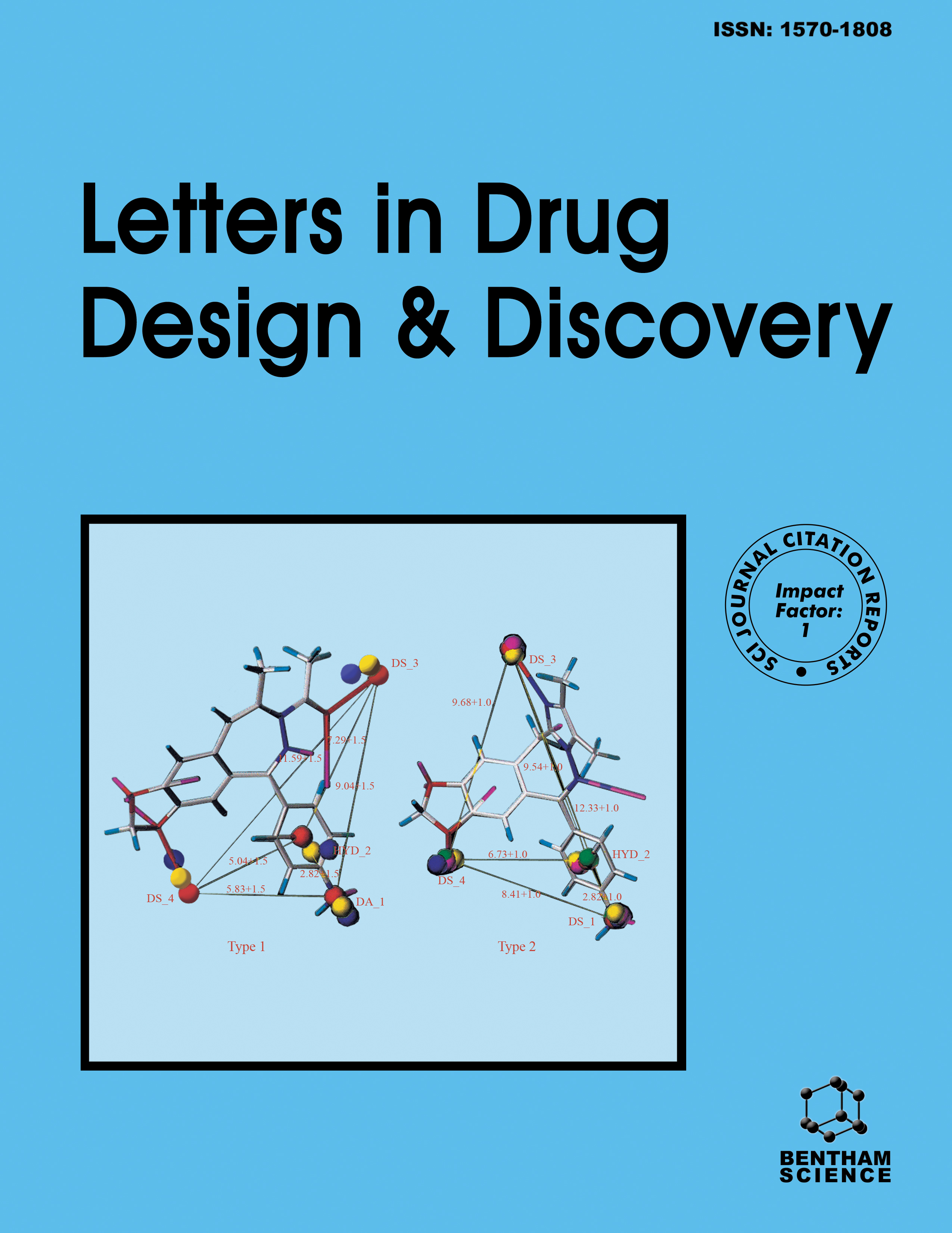-
s Synthesis, Anti-inflammatory, Antimicrobial Potential and Molecular Docking Studies of 4,5-Disubstituted-1,2,4-Triazole Thioacetate Derivatives
- Source: Letters in Drug Design & Discovery, Volume 16, Issue 7, Jul 2019, p. 734 - 745
-
- 01 Jul 2019
Abstract
Background: In the present study synthesis and biological assessment of nine new ethyl [(4,5-disubstituted- 4H-1,2,4-triazol-3-yl)sulfanyl]acetate derivatives 2(a-i) is performed. Methods: The title compounds were characterized by their analytical and spectral data. All the synthesized compounds were screened for their in vivo anti-inflammatory activity using carrageenaninduced rat paw oedema method and in vitro antimicrobial activity. All the compounds exhibited good anti-inflammatory activity; especially compound 2h produced the maximum effect i.e., 62.5 % comparable to that of standard, diclofenac. The antimicrobial screening results indicated that some of the newly synthesized compounds showed good antibacterial activity, especially against Escherichia coli. Results: All the synthesized thioacetate derivatives of triazoles were also studied for their interactions with the enzymes COX-I and COX-II, two important targets of inflammation pathway, through docking analysis. All the compounds showed good binding affinities with both the enzymes with a maximum value of -8.1 for 2e kcal/mol against COX-I. Conclusion: Docking analysis predicted that our compounds reduce inflammation nonselectively by inhibiting both COX-I and COX-II of inflammatory pathway just like other nonselactive NSAIDS.


